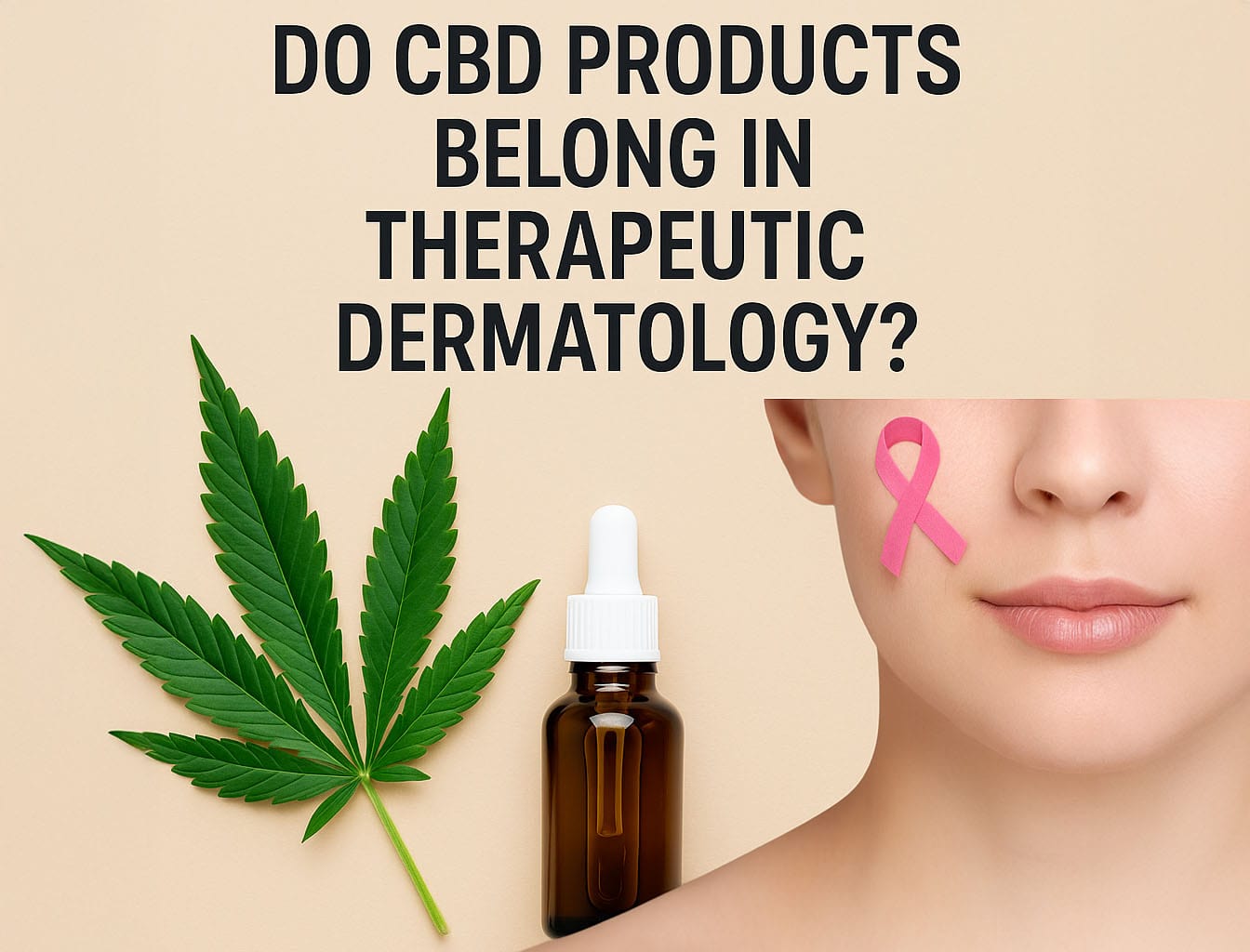Do CBD Products Belong in Therapeutic Dermatology?

Introduction
Cannabidiol (CBD), a non-intoxicating compound from the cannabis plant, is gaining attention in wellness and skincare. In recent years, dermatologists and researchers have started exploring whether CBD fits in therapeutic dermatology. With potential anti-inflammatory and antioxidant effects, CBD may help manage conditions ranging from acne to psoriasis. The question remains: does science support its use in dermatology today?
Background: CBD and Skin Health
CBD interacts with the endocannabinoid system (ECS), which regulates inflammation, pain perception, and immune response. Since skin cells express cannabinoid receptors (CB1 and CB2), CBD can influence processes that affect skin health.
Research shows CBD regulates oil production, reduces oxidative stress, and calms inflammation. Because of these effects, it could support therapies for skin conditions linked to inflammation and barrier dysfunction.
Potential Dermatological Applications
1. Acne and Sebum Regulation
Excess sebum and inflammation drive acne. A study found CBD reduces sebum activity and lowers inflammation, making it a potential topical treatment for acne (study).
2. Psoriasis and Atopic Dermatitis
Conditions like psoriasis and eczema involve chronic inflammation and immune imbalance. Early research suggests CBD slows down keratinocyte overgrowth and moderates immune response (study). As a result, it may ease symptoms and improve comfort.
3. Anti-Aging and Skin Protection
CBD’s antioxidant activity protects the skin from UV damage and premature aging. Since antioxidants are already staples in dermatology, CBD may serve as a natural addition (study).
Challenges and Limitations
Even with these promising results, CBD faces several obstacles:
- Regulation: Laws differ between countries, and guidance for therapeutic use remains unclear.
- Limited trials: Most evidence comes from preclinical or small-scale studies. Larger human trials are still needed.
- Formulation: Absorption varies widely depending on oils and carriers used.
- Quality control: Many CBD products lack standardization, making dosage and purity inconsistent.
The Future of CBD in Dermatology
The evidence suggests CBD may help treat inflammatory and oxidative stress-related conditions. Still, dermatology needs standardized formulations, stronger clinical trials, and clear regulations before CBD becomes a routine option.
Dermatologists considering CBD should evaluate the evidence, discuss expectations with patients, and choose products tested for quality and safety.
FAQ
Is CBD safe on the skin?
Yes, most studies show CBD is well-tolerated when used topically. However, product quality and purity must be verified.
Can CBD cure psoriasis or eczema?
No. CBD may ease symptoms but should complement, not replace, prescribed treatments.
Which CBD form works best for skin?
Topical creams and serums work directly on skin issues, while oral CBD may reduce systemic inflammation.
Do dermatologists recommend CBD?
Some dermatologists use it in treatment plans, but many remain cautious until more robust data emerges.
Disclaimer: This blog is for informational and educational purposes only. We review and reference available studies and reputable sources; however, content may not reflect the most current research or regulations and should not be taken as medical, legal, or professional advice. We do not make or imply health claims. Products mentioned are not intended to diagnose, treat, cure, or prevent any disease and statements have not been evaluated by EFSA or the FDA. Effects can vary between individuals. Always consult a qualified healthcare professional before use and verify that any product or ingredient is lawful in your jurisdiction.






